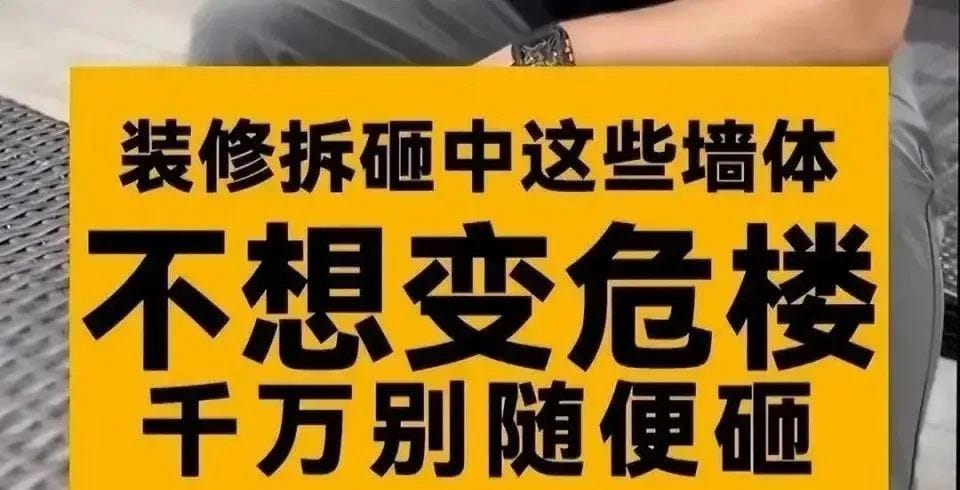Homeless in Harbin
Discussing how an illegal gym construction destroyed homes and lives
Welcome to RealTime Mandarin!
It’s a free weekly resource helping you learn contemporary Chinese in context, maintain and improve your Mandarin skills, and stay on top of the latest language trends in China.
Subscribe now to get the next newsletter in your inbox on Saturday.
Over 240 families living in a 31-story building in the city of Harbin were urgently evacuated from their homes last weekend.
It was caused by renovations on the third floor where the load-bearing wall was demolished. That night, the building cracked up to the 15th floor, and the next day, the cracks appeared up to the 21st floor.
起因是三层装修改造,将承重墙砸毁,当天晚上,楼体开裂到15层,第二天,裂缝最高出现到21层
This “aggressive refurbishment” (暴力改造 bàolì gǎizào) is not uncommon in China, with similar cases in Hangzhou and Guangzhou recently.
A resident of Guangzhou New World told the media that on March 31 he realised there was an unusual noise coming from the lower floor, he discovered that the load-bearing walls of the building had been demolished.
广州新世界业主向媒体报料称,2023年3月31日,突然发现楼下住户装修声音异常,便下楼沟通。到现场后发现,屋内的承重墙已经被拆掉了。
There’s a mix of new and old language in the discussions.
One writer evokes lines from the Dù Fǔ 杜甫 poem, The Hut Was Ruined in the Autumn Wind (茅屋为秋风所破歌 máo wū wèi qiū fēng suǒ pò gē):
Where can I get a well-built house with thousands of spacious rooms that can shelter all the world’s poor scholars and make them happy?
安得广厦千万间,大庇天下寒士俱欢颜,风雨不动安如山。 [2]
Written in 761, in this poem Du Fu expresses the pain of losing his home in a storm. We discuss this more in the member podcast.
Going deeper into Chinese history, the same writer recalls lines from the Book of Han (汉书), around 2000 years old, about the importance of having a home.
We explore this and much below!
🎧What you’re missing in the member podcast
Today’s member podcast episode is 38 minutes long with 32 minutes of excellent native Chinese audio, going deeper into this story, and some of the vocab we learn.
Sign up now to become a member, unlock the audio, and all the other member benefits!
Favourite Five
1. 危房 wēi fáng
dangerous building; dilapidated building
因为家里老的老,小的小,在宾馆没法照顾他们的饮食,只能回到“危房”里料理 - There are old people and kids in the family. The hotel does not have suitable food for them. So the only option is to first go back to the dangerous building to cook for them. [2]
Related: 危及 wéi jí - endanger
2. 傻X shǎ chā
idiot
一个傻X租户,一支愚蠢的装修队,对该小区B栋2单元3层进行“暴力改造” - One idiotic tenant and a stupid refurbishment team carried out an "aggressive renovation" on the 3rd floor of Unit 2, Building B. [2]
Note: Internet slang for 傻逼 shǎ bī to avoid censors.
3. 安土重迁 ān tǔ zhòng qiān
be unwilling to leave one's hometown
安土重迁,黎民之性;骨肉相附,人情所愿 - Attached to the land and unwilling to move — this is the nature of the common people. Interdependent among relatives and reluctant to leave them — this is a shared feeling.
Note: This is a 16-character phrase from the Book of Han (汉书 hànshū), a history of China finished in 111 AD. Our editor, Zoe, shares more in the podcast.
4. 睁一眼,闭一眼 zhēng yì yǎn, bì yì yǎn
turn a blind eye
在砸墙的时候虽然有很大动静,物业公司往往都睁一眼闭一眼 - Although there can be a lot of noise when the wall is removed, the property management company often keeps one eye open and the other eye closed. [1]
More: Learn more about the history of this phrase in the The China Project Phrase of the Week.
5. 三过家门而不入 sān guò jiā mén ér bú rù
passing by one’s home and unable to enter
望着已经开裂的单元楼,他们再恋恋不舍,也只能是“过家门而不入” - Looking at the cracked building, they can no longer return home, no matter how much they want to do so. [2]
Background: From the fable about Yu the Great (大禹 Dà Yǔ), a legendary king famed for his introduction of flood control and the establishment of China’s first dynasty, the Xia (夏 Xià). The legend tells the story of "Great Yu Controls the Waters" (大禹治水 dà yǔ zhì shuǐ), during which Yu passes by his home three times and does not enter because he is determined to build the flood control system first.
Consuming the Conversation
Useful words
6. 私自 sī zì
do something without permission
私自打通了一部分承重结构 - A part of the load-bearing structure was removed without permission. [1]
Related: 擅自 shàn zì - unorthorised
7. 包庇 bāo bì
cover up, shield
有些物业公司是在协助或者包庇业主进行违法施工的 - Some property management companies help residents with illegal construction or condone such act. [1]
8. 扎心 zhā xīn
heartbroken
就在大家焦急等待处理结果的时候,后续却迎来了更加扎心的一幕 - While everyone was anxiously waiting for the results, a more heart-wrenching scene followed. [2]
9. 挠头 náo tóu
scratching one’s head; confused
听到自家单元楼,有人砸承重墙,刘女士和她的丈夫急得直挠头 - Ms. Liu and her husband scratched their heads helplessly when they heard that someone smashed the load-bearing wall in their apartment building. [2]
10. 悲凉 bēi liáng
desolate
言语间有一抹无奈,又有一丝悲凉 - There is a touch of helplessness in the words, and a touch of sadness. [2]
More: 一抹 yì mǒ - a touch of
11. 兜底 dōu dǐ
back-up; plan B
他们是受害者,但他们不是要谁给他们兜底,而是需要一个答案 - They are victims, but they don't want someone to give them an alternative. They need an answer. [2]
12. 奇观 qí guān
spectacle
居然影响到全楼240多户居民的正常生活与安全,这可以说是现代都市“奇观” - It actually affects the normal life and safety of more than 240 households in the whole building. It’s a new kind of "spectacle" of a modern city. [5]
Note: Used ironically here.
Three-character phrases
13. 避风头 bì fēng tou
keep a low profile
物业公司就会通知业主避避风头,然后再继续施工 - The property management company will ask the home-owner (who carries out the illegal construction) to temporarily stop it before continuing the construction. [1]
14. 倒血霉 dǎo xiě méi
have bad luck
这个业主倒了八辈子血霉 - This resident has terrible luck. [4]
Note: This is a slang term is often used together with 倒八辈子 “use eight lifetimes”, to emphasise how unlucky the person is.
Related: 狗屎运 gǒu shǐ yùn "dog shit luck" means good luck in Chinese!
Idioms
15. 祸从天降 huò cóng tiān jiàng
a disaster from heaven; an unexpected disaster
如今祸从天降,租客也不敢继续住下去了,匆匆退房离去 - Faced with such a disaster which came out of nowhere, tenants did not want to stay there, so they hastily left. [2]
16. 提心吊胆 tí xīn diào dǎn
nervous
望着每天都有泥沙从裂缝中掉落的屋子,他们也提心吊胆 - Looking at their apartments where sand and rubble fall from the cracks every day, they are also worried. [2]
Related: 人心惶惶 rén xīn huáng huáng - in a panic
17. 欲哭无泪 yù kū wú lèi
want to cry but have no tears; helpless, powerless
另一位姓丁的女业主面对记者的采访也是欲哭无泪 - Another female resident surnamed Ding felt completely helpless when interviewed by reporters. [2]
18. 遮风挡雨 zhē fēng dǎng yǔ
a shelter from wind and rain
拥有一个属于自己的,能够遮风挡雨的房子,是每一个普通人最平凡的梦啊 - Owning a home that can protect you from wind and rain is the most basic dream of every ordinary person. [2]
19. 无济于事 wú jì yú shì
in vain; futile
安全都没有了,其他的再好也是空谈、无济于事 - If there is no security, no matter how good everything else is, it is empty talk and useless. [4]
Note: 济 jì means “help” here.
20. 屡禁不止 lǚ jìn bù zhǐ
disregard the rules repeatedly
这也是为何小区违规施工屡禁不止的根本所在 - This is also the fundamental reason why illegal construction in the community has continued to be carried out. [1]
Phrases
21. 甩手掌柜 shuǎi shǒu zhǎng guì
manager who bosses others around but doesn’t do anything himself/herself
小区物业不能收了管理费就做“甩手掌柜” - The property management company can’t sit there and do nothing after collecting the management fees. [1]
22. 野蛮装修 yě mán zhuāng xiū
wild refurbishments; illegal building work
因为一楼业主野蛮装修,敲掉了承重墙,导致整栋楼房成了危房 - The home-owner of the first floor illegally knocked down the load-bearing wall during refurbishment, making the whole building unliveable. [1]
Related: 暴力改造 bàolì gǎizào - aggressive refurbishment
23. 埋下隐患 mái xià yǐn huàn
create potential risks
往往会请一些不具备相应资质的打零工的工匠师傅,而这也为违规装修埋下隐患 - Often, some handymen who do not have the required qualifications are hired to do odd jobs, and this also creates hidden dangers for illegal decoration. [1]
Related: 埋下伏笔 mái xià fú bǐ to foreshadow something (often tragic)
Become a member of RealTime Mandarin+
The RealTime Mandarin+ membership is a multimedia resource helping you learn contemporary Chinese in context
If you enjoyed reading the free newsletter, you’ll LOVE our paid membership: RealTime Mandarin+.
Joining Real-Time-Mandarin+, you’ll unlock loads of extra resources to help you dramatically improve your Chinese language skills.
Every week you get access to new content:
🔈Podcast - 30 min podcast every Saturday with 80% native Mandarin (including transcript)
📚 Resources and integrations - Pleco, Skritter, Hack Chinese, mylingua (new!), and PDF printouts
👩🎓 Intermediate newsfeed - One ‘real’ Chinese language news podcast and article published every Sunday, in a lesson format, pitched at an intermediate level
💬 Community - Slack community, Substack Chat, online meet-ups, in-person gatherings
🤿 Quarterly Deep Dives - One hour webinars focussing on one key challenge of intermediate learners delivered around the end of every quarter.
When you join, you’ll also have an optional 1-1 onboarding and coaching call to help orientate you.
It’s the best way to get motivated, inspired, and kick-start your Mandarin learning habit.
You can access all of these resources for less than the cost of one pint per week in a London pub.
It’s a no brainer (and much better for you)!
So, if you’ve been on the fence for a while, now is the time to confront it, invest in yourself, and commit!
Happy learning!
Andrew





